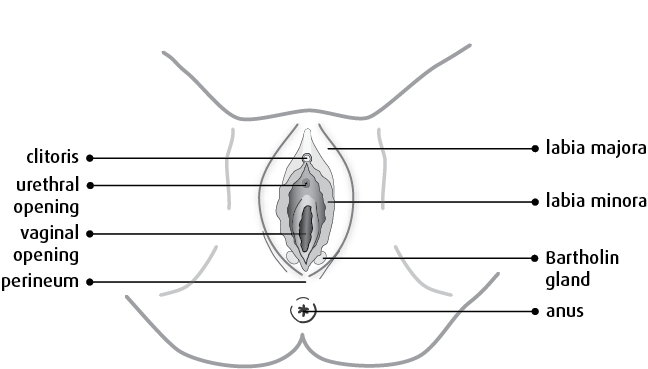
Vagina and Vulva Health
Everything you need to know about Vaginal Discharge Best Health Magazine
BV vs yeast vs normal discharge
Patients with recurrent Bacterial Vaginosis (BV) should ensure their male partners are treated.
What you need to know about getting a pap test Dr Kirkham in Best Health
The Vulva Diaries podcast on multiple conditions including Vulvovaginal conditions in children
More info on vulva skin conditions and hygiene from ISSVD
Lichen Sclerosus is a common, non-contagious skin condition of the vulva causing recurrent, chronic itch.
Are new intimate care products necessary? (NO!)
A must-read book for anyone with a vagina The Vagina Bible
Watch Jensplaining Episode 9 CBC GEM
Do I look normal down there? Labia Library
The Vulva
Many people use the term vagina incorrectly when they mean to describe the vulva (entire outer area skin and inner folds). The vagina refers only to the inner canal. Please encourage using the right terminology with children, teens, adults so they can safely describe any symptoms. Women sometimes suffer for years with eg. lichen sclerosus, a chronic, recurrent, skin condition that affects anywhere around the outer skin in a figure of 8 (around the labia majora, over the clitoris, at the perineum, and around the anus). It can be mistaken as “yeast infections” that affect the vagina, leading to delayed diagnosis. The itch, compulsion to scratch, tears (like paper cuts), and flares come and go. Lichen sclerosus is not contagious, it is a skin condition like eczema. It is common throughout life but moreso in pre-pubertal girls and menopausal women, when estrogen levels are low. Treatments include steroid ointments and estrogen cream during flares. Your skin can return to normal and many people have immediate relief! Treatment is important to prevent long-term structural changes in the anatomy (scarring or flattening) or tiny risk of skin cancer. Some people may need maintenance steroid ointments to prevent the above changes or recurrences.
Good vulva hygiene includes washing daily with water, using cleansers on hair-bearing areas, never using douches or soap internally. A gentle cleanser like Cerave hydrating cleanser is also safe on the outer genitals. Sitz baths (or in your bathtub), soaking in warm water for 5 minutes daily, are a very helpful way for cleaning but also for any vaginal or vulva cysts, or recurrent vaginal irritation/infections to resolve. Vaseline is a helpful barrier to prevent pain especially during urination when there is an open sore.

